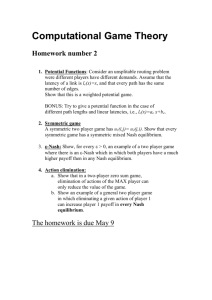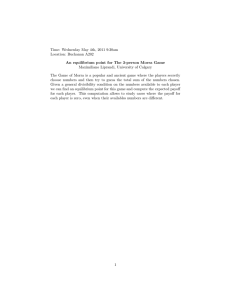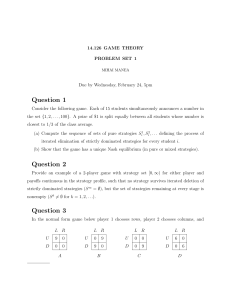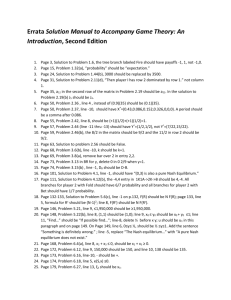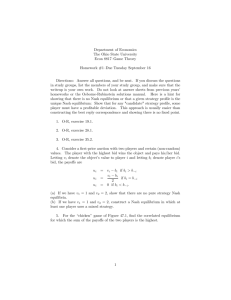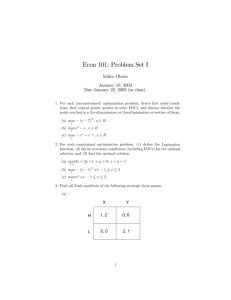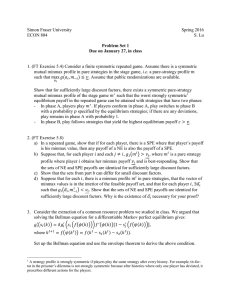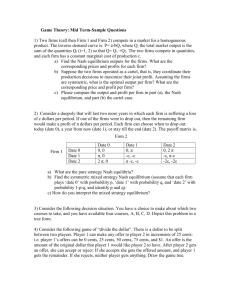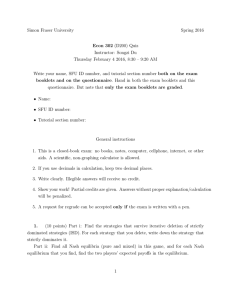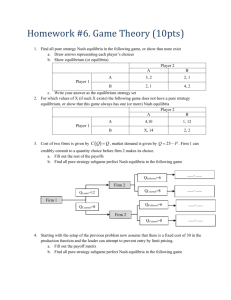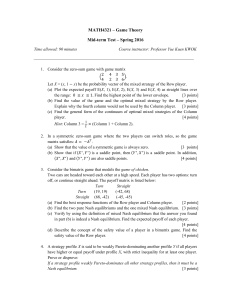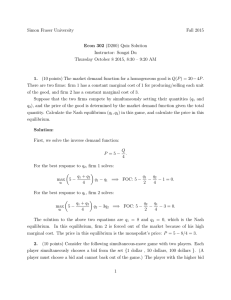Computational Game Theory
advertisement
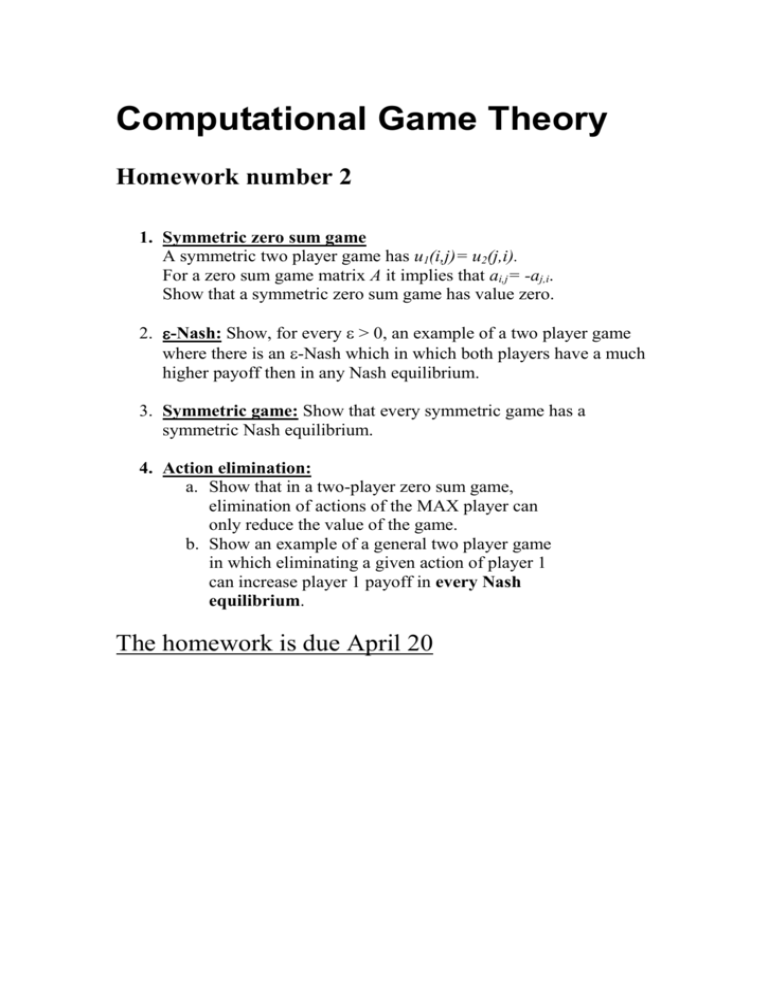
Computational Game Theory Homework number 2 1. Symmetric zero sum game A symmetric two player game has u1(i,j)= u2(j,i). For a zero sum game matrix A it implies that ai,j= -aj,i. Show that a symmetric zero sum game has value zero. 2. -Nash: Show, for every > 0, an example of a two player game where there is an -Nash which in which both players have a much higher payoff then in any Nash equilibrium. 3. Symmetric game: Show that every symmetric game has a symmetric Nash equilibrium. 4. Action elimination: a. Show that in a two-player zero sum game, elimination of actions of the MAX player can only reduce the value of the game. b. Show an example of a general two player game in which eliminating a given action of player 1 can increase player 1 payoff in every Nash equilibrium. The homework is due April 20
